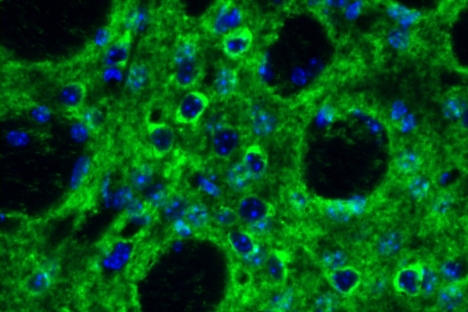
More than a decade before people with Huntington’s disease (HD) show symptoms, they can exhibit abnormally high levels of an immune-system molecule called interleukin-6 (IL-6), which has led many researchers to suspect IL-6 of promoting the eventual neurological devastation associated with the genetic condition. A new investigation by MIT neuroscientists shows that the story likely isn’t so simple. In a recent study they found that Huntington’s model mice bred to lack IL-6 showed exacerbated symptoms compared to HD mice that still had it. “If one looks back in the literature…



